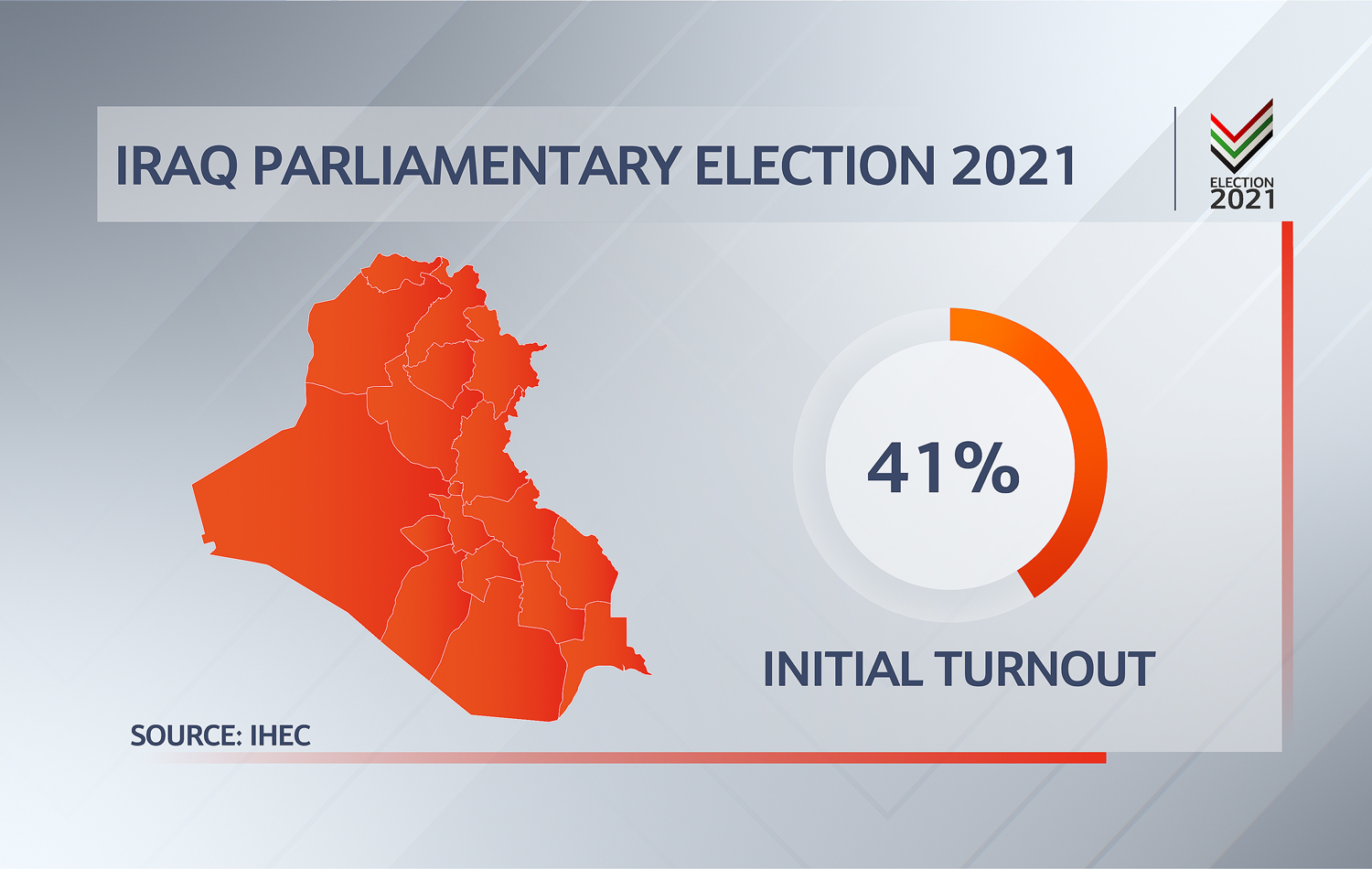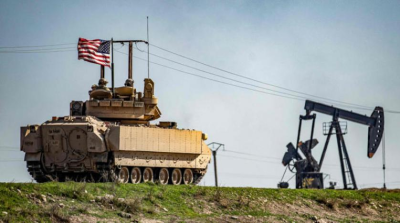JANNA ALADDIN

Supporters of the pro-Iran Hashd al-Shaabi alliance chant slogans in Baghdad’s Green Zone area, on Oct. 20, 2021. Iraq’s Oct. 10 elections reinforced the parliamentary strength of Shi’i preacher Moqtada Sadr, a critic of Iranian influence in Iraq. His ideological opponents, the pro-Iran Hashd al-Shaabi alliance, lost electoral support in this year’s vote. (AHMAD AL-RUBAYE
Washington Report on Middle East Affairs, November/December 2021, p. 63
Waging Peace
ON OCT. 13, the Arab Center Washington DC organized an online event, “Unpacking Iraq’s Parliamentary Elections: Significance, Outcomes and Implications,” which hosted a range of scholars on Iraq to discuss the most recent Oct. 10 Iraqi parliamentary elections. While the conversation extensively covered such topics as voter turnout, the rise of independent parties, the preliminary victory of Sadrists and the election’s regional impact, the speakers all also discussed the influence of Iraq’s ongoing Tishreen (October) popular movement on the elections.
Abbas Kadhim, director of the Atlantic Council’s Iraq Initiative, emphasized that the elections ran relatively smoothly and safely without security threats and with independent monitoring by representatives from the European Union and U.N.
Zeidon Alkinani, a foreign policy fellow at the Center for Iranian Studies (IRAM), provided an analysis of the Tishreen movement, a popular movement that emerged in Oct. 2019 calling for—among other demands—a complete overhaul of Iraq’s political system and of the ruling political class. Some of these opposition protesters called for a wide boycott of the elections, accounting for the considerably low voter turnout. The call to boycott rejected the sectarian quota system and the belief that change can happen from within the current political structure. Other groups, including those associated with the activist-led Imtidad political party, participated in the elections and won a considerable number of seats, forming the third largest political bloc.
Nussaibah Younis, a visiting fellow at the European Council on Foreign Relations, pointed out the positive implications of the rise of these new independent parties, going so far as to label them “glimmers of hope” that continue to widen the political sphere. Younis emphasized that these parties demonstrate the importance of civil society and its ability to form political parties that can counter the political weight of well-funded and established political parties. Kadhim, too, emphasized that certain boycotters might regret their decision because their votes would have contributed to independent party victories and increased their number of seats.
Younis pointed to the defeat of prominent political blocs such as al-Fatah, an alliance associated with the recent assassination of protesters, as evidence of the ongoing impact of the Tishreen movement. Yet, both Kadhim and Younis explained that the preliminary government will likely not forge extensive government and economic reforms.
Muqtada al-Sadr and members of his Sadrist party won the most seats, marking a turn away from Iranian-backed political groups. However, the speakers pointed out there are still questions about the specific shape the government will take and coalitions that will form.
The final speaker, Maria Fantappie, a special adviser for the Middle East and North Africa at the Center for Humanitarian Dialogue, focused more closely on the regional dynamics and implications of these elections. Iraq, Fantappie emphasized, has the potential to be a regional meeting place for cooperation and dialogue. She raised concerns that certain pro-Iranian political groups might retaliate based on the results of the elections and block regional collaboration. The election’s ramifications thus pivot between local and regional dynamics and equilibriums.
Despite their different expertise and focuses, all speakers agreed on the importance of these elections as both a sign of progress and ongoing pitfalls. As both participation and boycotts in the elections demonstrate, Iraqis from across diverse regions and political orientations called for an end to the reigning sectarian political order and for the representation of Iraqi civil society. As popular protests continue and as some losing coalitions call for vote recounts, the election’s implications will likely continue to unfold within the coming weeks.
—Janna Aladdin
————————————————————



